
Dr. Bülent Akdağ
Marmara University
Atatürk Faculty of Education Lecturer / Turkey
Eylem Korkmaz
Yıldız Technical University
PhD Student in Curriculum Development in Education / Turkey
Marmara University
Atatürk Faculty of Education Lecturer / Turkey
Eylem Korkmaz
Yıldız Technical University
PhD Student in Curriculum Development in Education / Turkey
Any evaluation on the current state of alternative education in Turkey is only possible through understanding the strict centralist structure of the education system of Turkey. The mentality of creating mono-type individuals in the Republican Era has been maintained for almost 80 years.
On the other hand, the deficiencies of the Turkey’s communities on the way to become civilian; the individual and social mindset of submission over power; the conservative social set up; the lack of awareness among the families and authoritarian state structure which doesn’t allow establishment of independent schools free from state control seems to delay the debates on alternative education and consequently, the practise of alternative education. The slow progress of democratisation and interruptions to this process caused by military coups prevented formation of different voices in the field of education, as well as other fields. During the period when the criticisms over the mainstream education intensified and alternative schools gained acceleration worldwide, the same developments couldn’t take place in Turkey. In particular, “though wind of 68 created a strong movement in Turkey; this era was closed before any questioning over the institutions was initiated”[1].
Through the “Code on Reunification of Education” dated 1924, all educational institutions were gathered under the umbrella of Ministry of National Education. The reasoning of this law says that the individuals of a nation can only be educated in one single form; otherwise there wouldn’t be any union of feelings, ideas and solidarity. Thus, an understanding of “state” centred education was legally and conceptually formulated in the foundation of the Republic of Turkey.
The philosophical foundations of the education concept that emerged in 1940s were based on pragmatist – instrumentalist philosophical thought and approach[2]. In 1940, a new model of education was launched in Turkey. This model named “Village Institutes” survived for about 13 years and educated thousands of teachers.
The Village Institutes, being very significant in the education history of Turkey and training teachers for enlightenment age of Turkey, are described as an alternative education model by many researchers and intellectuals. Therefore, it would be appropriate to clarify why we don’t deem Village Institutes as “alternative”.
The Village Institutes were based on the concept that the education should start from the rural and they maintained on a work-centred formation. They blatantly pursued the aim of spreading the principles of revolution of Republican Turkey via missionary teachers and became part of mainstream education project of Turkey during 1940ies. It’s an attempt of institutionalisation which introduced a methodological difference, a changed model to the education.
The state of Turkey had pursued two main goals through Village Institutes; one ideological and one economic. The regime considered a political socialization which would be based on Western values ideologically to be the solution; and regarded education as an important instrument for this. As a matter of fact, the concept of development via education was prevailing during World War II. This approach was a substantial aspect of the modernisation theories of the time, and it was influential all around the globe. The economic goal was to boost the agricultural production in the cheapest way using the rural proletariat by means of Village Institutes. The method for that would naturally be the policy of mass arts and crafts training which was used to train qualified labour force when capitalism made a leap forward by industrialisation in the West[3].
Due to these reasons, it wouldn’t be appropriate to demonstrate Village Institutes within the panorama of the history of alternative education. The teacher candidates attending the Institutes were raised in line with Atatürk’s principles and revolutions. The students can’t be said to have the right to identify their needs and make a choice. The institutes remained a part of a holistic education system and were inscribed in the education history as a model of original and producer work-education school. The Village Institutes were a model of the compulsory education system. Therefore, it cannot be considered within the general framework of alternative education. Rather than being human-centred, it was state and nation centred. Hence, it can’t be deemed as an alternative education model in the Turkish education history.
At the Basic Code on National Education, dated 1973, the attributes of the “person” to be achieved through education have been clarified and described in the law. Accordingly, three goals were set as “good person”, “producer person” and “good citizen”. In accordance with these targets, a statist and nationalist education system has been maintained so far. Today, the “positivist” education system of Turkey is trying to integrate to the neo-liberal education policies and European Union education models by basing its philosophical foundations on “pragmatism”.
In this context, any attempt for alternative education in Turkey requires envisaging many challenges. Unsurprisingly, the strict political and legal structure of the education system has prevented emerging of alternative education models to date. In Turkey, instigating a debate on the understanding of “raising a monotype person” which was set by various units of Ministry of National Education in the course of the Republican Era and placing the alternative education models on the agenda seems to be a long path which is only achievable by changing conventional perspectives.
In general, “the way of seeing the human” in education, the attitudes concerning the human nature, concerns, designs, utopias and the blockages of the problems which arise during the operating structure of the education create the projection of alternative education in the world history[4]. The reflections of this history in Turkey was limited to a few books, article translations and attempts to apply Montessori method in pre-school education up until 2000s.
It can be said that the books and articles published on alternative educations gained a slow acceleration only after 1990s. For example, “A Primer of Libertarian Education” by Joel Spring; “The Secret of Childhood” by Maria Montessori; some books of Paulo Freire, A.S. Neill, Ivan Illich, John Holte could be published in Turkey years after the originals had been published and unfortunately there wasn’t much of interest from the public. We can say that the books translated into Turkish on alternative education are limited to the above mentioned. Though these are very important reference books, each of them deals with a different aspect of alternative education. Thus, the major task in front of us is publishing books which explain different applications of alternative education all together to provide a holistic perspective to the reader on “alternative education movement”.
Yet, as from 2005, the meeting of scholars and individual practitioners in this area at the 1st Symposium on Alternative Education speeded up the alternative education process in our country. Consequently, the goal was set as learning the alternative education models from around the world in an organised manner; and discussions and initiatives were launched for applications in Turkey.
In 2005, Prof. Dr. Muhsin Hesapçıoğlu and Marmara University MA students Burçak Morhayım, Selma Çakmaklı and Eylem Korkmaz decided to organise the 1st International Symposium on Alternative Education, considering the theoretical and practical gaps in Turkey in the field of alternative education. The tools to be used in order to intensify alternative education studies in Turkey were assessed, and a symposium was identified to be the most efficient instrument as it would ensure benefiting from the experiences of international experts who endeavoured for years in this field as well as gathering together the people interested in alternative education from around Turkey. In the symposium, examples of methods and schools in the scope of various models of alternative education were presented as far as allowed by the budget and conditions of the symposium. The aim was to provide a general idea on all models without bringing a specific model to the forefront, so that the participants would be able to take initiative on theory and practise of the models and methods that they feel close to. The presentations conducted in the course of the symposium were “Compulsory Education” by Matt Hern, “Alternative Education Philosophies” by Ron Miller, “Waldorf Education” by Jill Sayre Wolcott, “Montessori Education” by Cheryl Ferreira, “Democratic Education” by Yaacov Hecht, “Free Schools – Summerhill Example” by Jason Preater. “Critical Pedagogy and MST Example” by Metin Yeğin and “From Authoritarian Education to Free Education” by Tayfun Özkaya were the presentations which dealt with the critical pedagogy. Besides these names, distinguished researchers from Turkey conducted effective presentations by combining their experiences from Turkey with the alternative education. About 300 people from different cities attended this symposium, which was the first in its area. It may be said that this number demonstrates quite a good participation level for a symposium whose topic is “alternative education”.
It was planned to set up study groups to sustain the process commenced with the symposium. Therefore, at the end of the symposium two calls for meeting were made; one for the organisations and one for the individuals. The meeting for individuals was attended by about 20 people; thus planting the first seeds of the alternative education association. In the first meeting, the symposium process was explained and ideas were put forward for the work to be conducted in the future. A mail list was created and one month later the group came together for a second meeting. Now, there was a group of people calling themselves “alternative education work group” and organising regular meetings.
This group with 10-15 activist members has set “in-group functionality rules” and started to examine the alternative education examples from around the world by means of their web based communication network. They have been intensively discussing on “education”, “alternative education” and “projects for application” in their periodical meetings. Almost each of the group members comes from a different background; they have different areas of expertise and different expectations. Furthermore, there is another communication network for participants who have a general interest in the subject apart from the activist members of the Alternative Education Group.
Shortly after the group was constructed, it was decided to establish an association as it would facilitate fundraising for the activities of the group; and Alternative Education Association was established about one year after the symposium. The main goal of the association was described as creating an agenda in Turkey on alternative education methods and practises as well as supporting initiatives for practical examples. A web site was built on the subject area in Turkey to provide reference material. However, there are still many deficiencies of the association stemming from the lack of human resources and budget. Alternative Education Association has nowadays found a place to put its files and other official documentation at the premises of Buğday Association; yet it’s endeavouring for creation of a site that belongs to itself. Alternative Education Association has conducted many activities in 1.5 years despite limited opportunities. Currently, the subject areas and times of the activities of the association are set in accordance with the people who wish to share their knowledge, the demands of the individuals, and the needs of the association members. Though the founders of the association know about different methods of alternative education, the activities are organised with the help of people from outside the association and in particular those who have experience on these methods abroad; as most of the members do not have a specialist level know-how on the specific methods. Although each member of the association has a special interest or affinity on a specific alternative education method or alternative school, these personal interests are set aside, and all alternative education methods are included as far as possible while organising the activities; because many alternative education methods and alternative schools are unknown to the public in Turkey. The Montessori, which is the most commonly known method, has predominantly attracted interest of those educators who work in the pre-school education. The other model which is known in Turkey is the critical pedagogy, as an area of particular interest for the socialists. Though Alternative Education Association hasn’t yet organised activities on all of the methods, it has taken steps forward on the way to become an umbrella organisation for the alternative education methods at the least.
1st symposium, all other activities and association provided people motivations to start new initiatives. The activities about alternative education in various areas resulted in people to contact the association. It can be seen unimportant to mention the activities of the association for the readers but it is vital to show the low level of knowledge and applications in alternative education in Turkey. Therefore the activities and level of applications in Turkey was shortly explained.
Three additional Waldorf seminars and workshops have been organized since the seminar was last held. According to a message received by the Association just before the last Waldorf session, the Turkish speaking Waldorf preschool teachers in Germany congregated and discussed whether to open a center in Turkey for the Waldorf teachers. Meanwhile, Pınar Hacaoglu, one of the founder members of the Association, decided to set up a Waldorf school in Izmir, and visited Germany to examine such schools. The above-mentioned are the first notable attempts for Waldorf education in Turkey. Previous attempts that had been made by Turkish expatriates who had lived in Germany did not yield any positive results. The association has been substantially successful in bringing like-minded people together and creating coordination between them.
Participants from Diyarbakır-based KAMER Foundation (Women’s Centre Foundation) also attended the Alternative Education Symposium. KAMER, established in 1997, is conducting women and children’s projects in 23 cities in Eastern and South Eastern Turkey. KAMER has got 12 children houses. It carries out significant projects about honor killings and violence against women. According to the foundation women and children problems are interconnected. So after the 1st International Alternative Education Symposium, it sought Alternative Education Association’s help to organize a symposium namrd "Alternative Education Models at Preschool Period" as a part of "Give Life to Children Project". KAMER's request was accepted. It was thoroughly supported during the symposium. Even a presentation about alternative education was given out. Thus, two alternative education symposiums were held in Turkey in the same year. Nearly all of the 100 participants were either KAMER's volunteers or professional workers from different cities. After the symposium, it targeted choosing Alternative education methods suitable to the local environment and implementing these to the children houses
Matt Hern, who participated in the KAMER's symposium, shared his thoughts and experiences in the "Deschooling and Democratic Education" panel discussion organized in Istanbul. This may be entitled as the first serious activity in Turkey about deschooling. it seems very hard for deschooling to be a part of Turkish education system if firstly, it is considered a reaction against the institutionalization in education sector, against certification and against the monopolization of "knowledge" by governmental institutions, and secondly, if families' choose to educate their children by themselves, However, it is worth mentioning that two significant models have been implemented in Turkey for years in terms of the prior-mentioned reactions. Although they do not completely qualify as alternative education models, "BILAR" and "Free University" may be considered as examples of alternatives to government run educational institutions. The first one, BILAR was founded by socialist author Aziz Nesin, as an alternative where academics expelled from government universities could give lectures. Aziz Nesin while describing BILAR states : "We conceive BILAR as a 'people's university'... It is a university which low-educated laborer, a housewife or a university student could attend. We tried to create this opportunity, but couldn't succeed. The laborers didn't show much interest; neither were they desirous enough." Unfortunately, BILAR did not survive much. Free University was founded in 1992 and merged with Forum of Turkey and Middle East Association in 1998. Fikret Başkaya, Director of Free University describes the Free University in these words: "... We don't aim to replace present universities - because we don't issue diplomas, we don't give exams. We don't have a profession-oriented education. Our studies aim to criticize and abolish these things. We criticize the official history and ideology that infects the educational system. We are trying to create a consciousness against global capitalism. We organize lectures, conferences, seminars; we publish books and periodicals to achieve this target..." Free University, which offers education at two centers, doesn't have any financial support from any institution and collects only a symbolic fee from the students. The Association is trying to survive with Fikret Baskaya's book revenues. Free University is an important example and has reached thousands of students since 1992.
About home education only one name stands out in Turkey: Rock singer Erkin Koray who didn't send his daughter to school because of what he calls “ridiculous” education system. In the entire Modern Turkish history, he is the only person who openly renounces the Turkish education system. In recent years, Islamic circles have started discussing home education. In Turkey headscarf is forbidden at all schools as well as universities. Consequently, many students have left Turkish universities and have continued their education abroad. Islamic circles accept home education as an alternative to this problem, however, since the secular government and the army perceives "Religious Reactionism" as a serious threat, it is clear that all moves toward home education will, at least in the near future, face a very strong reaction.
Unfortunately, socialist groups and anarchists in Turkey aren't interested much in methods of alternative education. Due to their pro-state attitudes and their opinion regarding private financing of education, they do not seem to be in favor of alternatives except for reforming only the government schools. The anarchists in Turkey whom we interviewed declared that they totally rejected educational institutions, but they were not at all interested in creating new alternatives. However they seem to be more interested in critical pedagogy. This interest mostly stems from the book "The Pedagogy of the Oppressed" by a Marxist P. Freire published in 1969. It could only be translated in the early '90s. Recognizing that interest, Alternative Education Association organized a "critical pedagogy panel meeting". In this panel, the examples of Brazilian Landless Peasants Movement and Porto Alegre Citizenship School were discussed in terms of critical pedagogy. In the same year 2007, though not completely active, a "critical pedagogy working group" was created under the organization of Comparative Education Association.
In Turkey Montessori education is by far the most commonly known and studied method of alternative education. It was first tried in the '70s. Under Güler Yücel's leadership, a Montessori education rehabilitation center was created at the Capa Department of Children Psychotherapy at the Istanbul University. Many Montessori preschools were founded in the 90’s but most closed down later on. Although many preschools claim to have adapted to the Montessori model, only 3-4 of them have actually done so Brain drain and the lack of Montessori teacher training schools are among the most significant reasons of the low success rate.
After the 1st Alternative Education Symposium, a series of seminars took place in accordance with the propositions by pro-Montessori educators in Turkey and Cherly Ferreira. All participants both the academics and teachers wanted to specialize in this subject. So, preliminarily Alternative Education Association organized a course for training Montessori assistant teachers in collaboration with the Association Montessori International and issued certificate to 25 people. It also plans to open a Montessori teacher training center. After the symposium, Independent Montessori activities started taking place and the previous studies started yielding substantial results. A comprehensive Montessori education web site with limited material in Turkish language was launched. About a 1,000 people joined the website within the first one and a half year. Two Montessori application classes opened up at two universities. There has been a sharp rise in Montessori education researchers. A state university is considering a project about training teachers from state-run high schools.
As previously mentioned, there is a lack of material in Turkey about alternative education. The lack of material in Turkish language hinders the popularity of alternative education. In order to tackle this problem, Alternative Education Association is publishing articles about alternative education in the critical pedagogy magazine "Bell and Break".
Apart from all these activities, Alternative Education Association makes presentations to all kinds of institutions they are invited to and respond positively to all kinds of assistance requests. Also, at all the workshops book stands are set up to display the books, and documentaries are shown.
To this point, we have tried to explain the activities in Turkey in terms of alternative education. On the other hand, we strongly believe that it is important to get in touch with trainee teachers at the universities in order to spread alternative education. So, it is high time an "academic summit" should be organized as soon as possible regarding possible actions to increase alternative education at universities, making the alternative education methods part of the lectures and ensuring coordination among the concerned academics. Cooperation would make all the present and past studies fruitful. Although individual studies are as valuable, they are not enough for a change. In this context, there is a strong need to organize another international symposium. After acquiring sufficient financial strength our prior targets constitute establishing an alternative education library and translating new books into Turkish. Currently Alternative Education Association is not planning to open up a school, however, it is trying to give consultancy assistance to people who plan to do so
To conclude, we may state that Turkey has a long way to go in terms of Alternative education. We understand that this process would become much easier if there is cooperation among our friends both inside and outside of Turkey. We do believe that any individual or institution that wants to come to Turkey in order to share their experiences and organize coordinated activities will immensely contribute to this newly shaping process.
Bibliography
Akdağ, Bülent. (2006). “Eğitim Felsefesinde İnsanı Görme Tarzı”, [Way to See the Human in Education Philosophy] , İstanbul: Yaşadıkça Eğitim Dergisi, [Yaşadıkça Journal of Education] Issue: 90, p.2-5.
Başkaya, Fikret. (2007). Notes from a Personal Interview, Ankara.
Bumin, Kürşat. (1998). Okulumuz, Resmi İdeolojimiz ve Politikaya Övgü, [Our School, Our Official Ideology and Praise for Politics], İstanbul: Yol Publications, p.33.
İnal, Kemal. (2001). “Köy Enstitüleri Neden ve Nasıl Eleştirilmeli?” [Why and How Should the Village Institutes Be Criticized?] , İstanbul: Evrensel Kültür Dergisi [Journal of Universal Culture], Issue: 11, p.12-13.
Demirdöven, H. İsmail. (2003). “Çağdaş Açılımlarıyla Eğitim Kavramı” [Concept of Education with Contemporary Openings], Felsefe Söyleşileri I-II [Essays on Philosophy I-II], (Compiled by: Betül Çotuksöken), İstanbul: Maltepe University Marmara Education Foundation Publications, p.94-100. Nesin, Aziz. (1992). “Notes from the Meeting of Generations”, İstanbul: Tarih Vakfı [History Foundation].
Matt Hern, who participated in the KAMER's symposium, shared his thoughts and experiences in the "Deschooling and Democratic Education" panel discussion organized in Istanbul. This may be entitled as the first serious activity in Turkey about deschooling. it seems very hard for deschooling to be a part of Turkish education system if firstly, it is considered a reaction against the institutionalization in education sector, against certification and against the monopolization of "knowledge" by governmental institutions, and secondly, if families' choose to educate their children by themselves, However, it is worth mentioning that two significant models have been implemented in Turkey for years in terms of the prior-mentioned reactions. Although they do not completely qualify as alternative education models, "BILAR" and "Free University" may be considered as examples of alternatives to government run educational institutions. The first one, BILAR was founded by socialist author Aziz Nesin, as an alternative where academics expelled from government universities could give lectures. Aziz Nesin while describing BILAR states : "We conceive BILAR as a 'people's university'... It is a university which low-educated laborer, a housewife or a university student could attend. We tried to create this opportunity, but couldn't succeed. The laborers didn't show much interest; neither were they desirous enough." Unfortunately, BILAR did not survive much. Free University was founded in 1992 and merged with Forum of Turkey and Middle East Association in 1998. Fikret Başkaya, Director of Free University describes the Free University in these words: "... We don't aim to replace present universities - because we don't issue diplomas, we don't give exams. We don't have a profession-oriented education. Our studies aim to criticize and abolish these things. We criticize the official history and ideology that infects the educational system. We are trying to create a consciousness against global capitalism. We organize lectures, conferences, seminars; we publish books and periodicals to achieve this target..." Free University, which offers education at two centers, doesn't have any financial support from any institution and collects only a symbolic fee from the students. The Association is trying to survive with Fikret Baskaya's book revenues. Free University is an important example and has reached thousands of students since 1992.
About home education only one name stands out in Turkey: Rock singer Erkin Koray who didn't send his daughter to school because of what he calls “ridiculous” education system. In the entire Modern Turkish history, he is the only person who openly renounces the Turkish education system. In recent years, Islamic circles have started discussing home education. In Turkey headscarf is forbidden at all schools as well as universities. Consequently, many students have left Turkish universities and have continued their education abroad. Islamic circles accept home education as an alternative to this problem, however, since the secular government and the army perceives "Religious Reactionism" as a serious threat, it is clear that all moves toward home education will, at least in the near future, face a very strong reaction.
Unfortunately, socialist groups and anarchists in Turkey aren't interested much in methods of alternative education. Due to their pro-state attitudes and their opinion regarding private financing of education, they do not seem to be in favor of alternatives except for reforming only the government schools. The anarchists in Turkey whom we interviewed declared that they totally rejected educational institutions, but they were not at all interested in creating new alternatives. However they seem to be more interested in critical pedagogy. This interest mostly stems from the book "The Pedagogy of the Oppressed" by a Marxist P. Freire published in 1969. It could only be translated in the early '90s. Recognizing that interest, Alternative Education Association organized a "critical pedagogy panel meeting". In this panel, the examples of Brazilian Landless Peasants Movement and Porto Alegre Citizenship School were discussed in terms of critical pedagogy. In the same year 2007, though not completely active, a "critical pedagogy working group" was created under the organization of Comparative Education Association.
In Turkey Montessori education is by far the most commonly known and studied method of alternative education. It was first tried in the '70s. Under Güler Yücel's leadership, a Montessori education rehabilitation center was created at the Capa Department of Children Psychotherapy at the Istanbul University. Many Montessori preschools were founded in the 90’s but most closed down later on. Although many preschools claim to have adapted to the Montessori model, only 3-4 of them have actually done so Brain drain and the lack of Montessori teacher training schools are among the most significant reasons of the low success rate.
After the 1st Alternative Education Symposium, a series of seminars took place in accordance with the propositions by pro-Montessori educators in Turkey and Cherly Ferreira. All participants both the academics and teachers wanted to specialize in this subject. So, preliminarily Alternative Education Association organized a course for training Montessori assistant teachers in collaboration with the Association Montessori International and issued certificate to 25 people. It also plans to open a Montessori teacher training center. After the symposium, Independent Montessori activities started taking place and the previous studies started yielding substantial results. A comprehensive Montessori education web site with limited material in Turkish language was launched. About a 1,000 people joined the website within the first one and a half year. Two Montessori application classes opened up at two universities. There has been a sharp rise in Montessori education researchers. A state university is considering a project about training teachers from state-run high schools.
As previously mentioned, there is a lack of material in Turkey about alternative education. The lack of material in Turkish language hinders the popularity of alternative education. In order to tackle this problem, Alternative Education Association is publishing articles about alternative education in the critical pedagogy magazine "Bell and Break".
Apart from all these activities, Alternative Education Association makes presentations to all kinds of institutions they are invited to and respond positively to all kinds of assistance requests. Also, at all the workshops book stands are set up to display the books, and documentaries are shown.
To this point, we have tried to explain the activities in Turkey in terms of alternative education. On the other hand, we strongly believe that it is important to get in touch with trainee teachers at the universities in order to spread alternative education. So, it is high time an "academic summit" should be organized as soon as possible regarding possible actions to increase alternative education at universities, making the alternative education methods part of the lectures and ensuring coordination among the concerned academics. Cooperation would make all the present and past studies fruitful. Although individual studies are as valuable, they are not enough for a change. In this context, there is a strong need to organize another international symposium. After acquiring sufficient financial strength our prior targets constitute establishing an alternative education library and translating new books into Turkish. Currently Alternative Education Association is not planning to open up a school, however, it is trying to give consultancy assistance to people who plan to do so
To conclude, we may state that Turkey has a long way to go in terms of Alternative education. We understand that this process would become much easier if there is cooperation among our friends both inside and outside of Turkey. We do believe that any individual or institution that wants to come to Turkey in order to share their experiences and organize coordinated activities will immensely contribute to this newly shaping process.
Bibliography
Akdağ, Bülent. (2006). “Eğitim Felsefesinde İnsanı Görme Tarzı”, [Way to See the Human in Education Philosophy] , İstanbul: Yaşadıkça Eğitim Dergisi, [Yaşadıkça Journal of Education] Issue: 90, p.2-5.
Başkaya, Fikret. (2007). Notes from a Personal Interview, Ankara.
Bumin, Kürşat. (1998). Okulumuz, Resmi İdeolojimiz ve Politikaya Övgü, [Our School, Our Official Ideology and Praise for Politics], İstanbul: Yol Publications, p.33.
İnal, Kemal. (2001). “Köy Enstitüleri Neden ve Nasıl Eleştirilmeli?” [Why and How Should the Village Institutes Be Criticized?] , İstanbul: Evrensel Kültür Dergisi [Journal of Universal Culture], Issue: 11, p.12-13.
Demirdöven, H. İsmail. (2003). “Çağdaş Açılımlarıyla Eğitim Kavramı” [Concept of Education with Contemporary Openings], Felsefe Söyleşileri I-II [Essays on Philosophy I-II], (Compiled by: Betül Çotuksöken), İstanbul: Maltepe University Marmara Education Foundation Publications, p.94-100. Nesin, Aziz. (1992). “Notes from the Meeting of Generations”, İstanbul: Tarih Vakfı [History Foundation].
Notlar:
[1] Kürşat Bumin. (1998). Okulumuz, Resmi İdeolojimiz ve Politikaya Övgü [Our School, Our Official Ideology and Praise for Politics], İstanbul: Yol Publications, p.33.
[2] İsmail H. Demirdöven. (2003). “Çağdaş Açılımlarıyla Eğitim Kavramı” [Concept of Education with Contemporary Openings], Felsefe Söyleşileri I-II [Essays on Philosopy I-II], (Compiled by: Betül Çotuksöken), İstanbul: Maltepe University Marmara Education Foundation Publications, p.94-100.
[3] Kemal İnal. (2001). “Köy Enstitüleri Neden ve Nasıl Eleştirilmeli?” [Why and How Should the Village Institutes Be Criticized?] , İstanbul: Evrensel Kültür Dergisi [Journal of Universal Culture], Issue: 11, p.12-13.
[4] Bülent Akdağ. (2006). “Eğitim Felsefesinde İnsanı Görme Tarzı” [Way to See the Human in Education Philosophy] , İstanbul: Yaşadıkça Eğitim Dergisi,[Yaşadıkça Journal of Education] Issue: 90, p.2-5.
[1] Kürşat Bumin. (1998). Okulumuz, Resmi İdeolojimiz ve Politikaya Övgü [Our School, Our Official Ideology and Praise for Politics], İstanbul: Yol Publications, p.33.
[2] İsmail H. Demirdöven. (2003). “Çağdaş Açılımlarıyla Eğitim Kavramı” [Concept of Education with Contemporary Openings], Felsefe Söyleşileri I-II [Essays on Philosopy I-II], (Compiled by: Betül Çotuksöken), İstanbul: Maltepe University Marmara Education Foundation Publications, p.94-100.
[3] Kemal İnal. (2001). “Köy Enstitüleri Neden ve Nasıl Eleştirilmeli?” [Why and How Should the Village Institutes Be Criticized?] , İstanbul: Evrensel Kültür Dergisi [Journal of Universal Culture], Issue: 11, p.12-13.
[4] Bülent Akdağ. (2006). “Eğitim Felsefesinde İnsanı Görme Tarzı” [Way to See the Human in Education Philosophy] , İstanbul: Yaşadıkça Eğitim Dergisi,[Yaşadıkça Journal of Education] Issue: 90, p.2-5.
***
Referans: Akdağ, Bülent / Korkmaz, Eylem. (2008). “Building an Alternative Education Movement in Turkey”, Everywhere All The Time: A New Deschooling Reader, (Ed.By Matt Hern) AK Press 674-A 23rd Street Oakland, CA 94612.

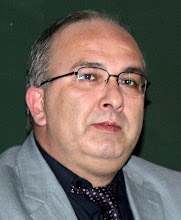




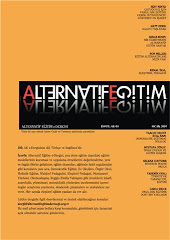

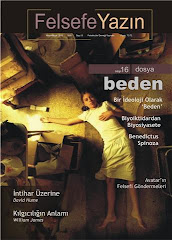
























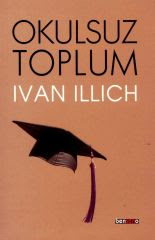

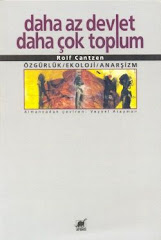
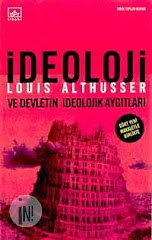
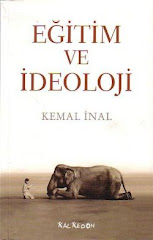

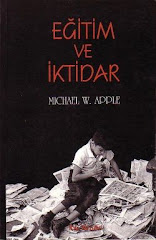

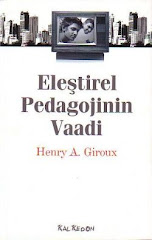


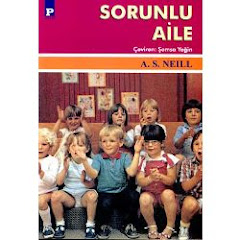
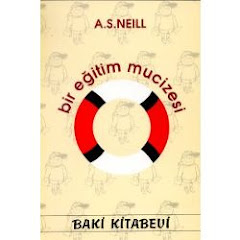
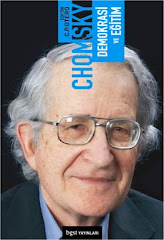













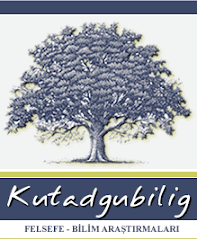

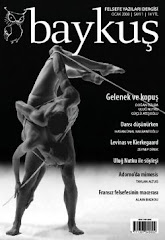
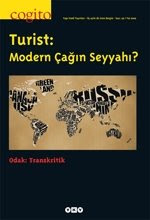
















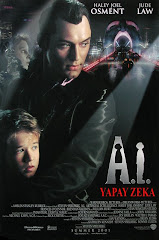



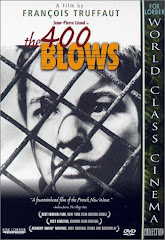




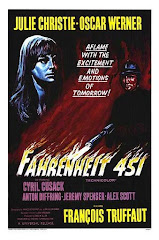



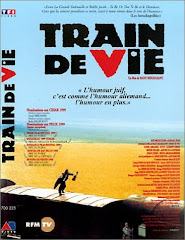

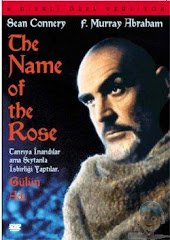
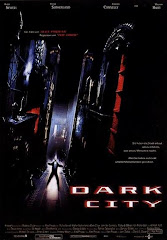












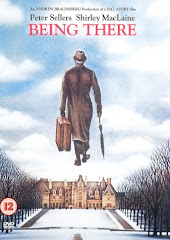
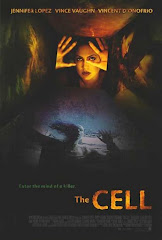


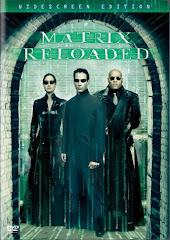





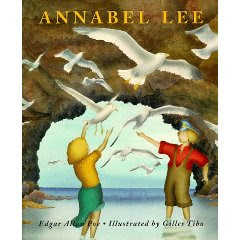




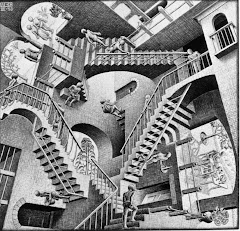






















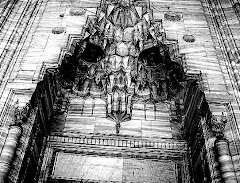




























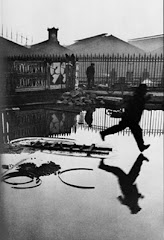



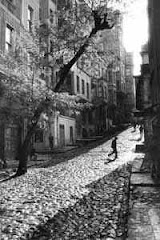

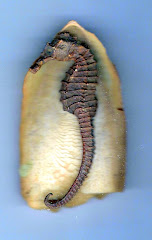
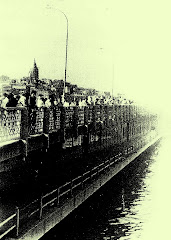

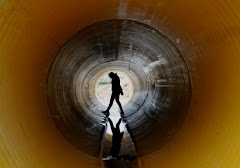

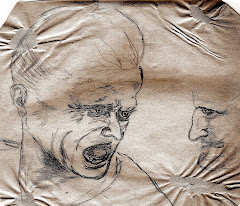

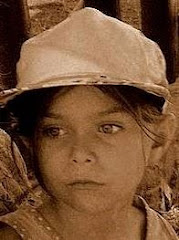






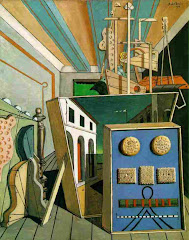



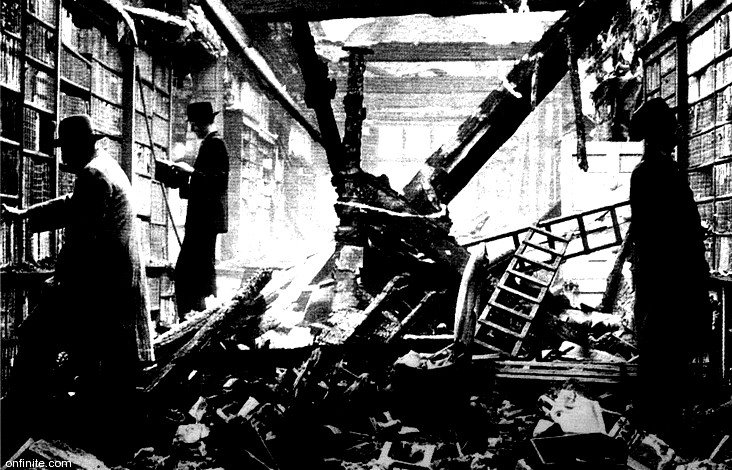
Hiç yorum yok:
Yorum Gönder